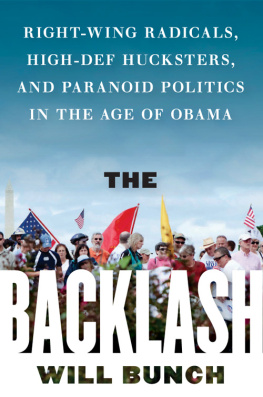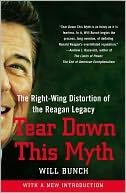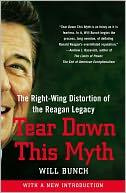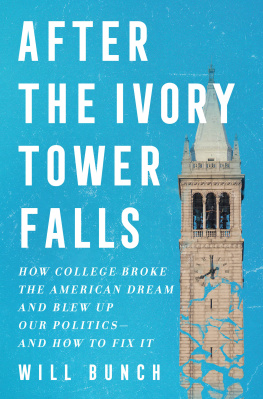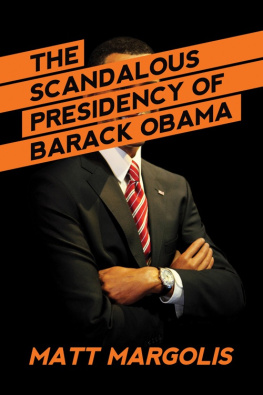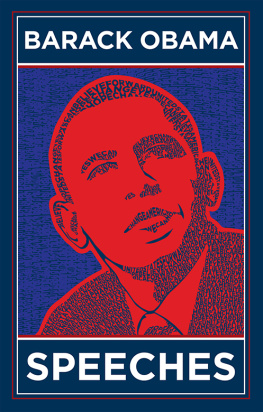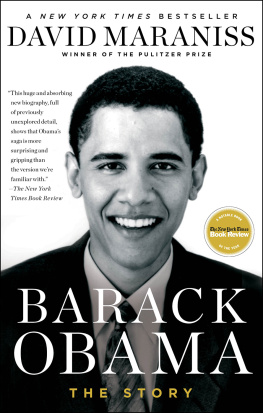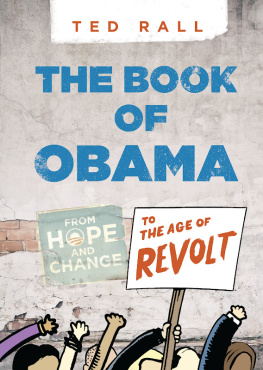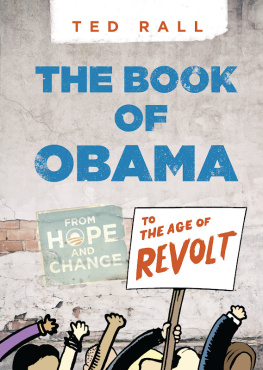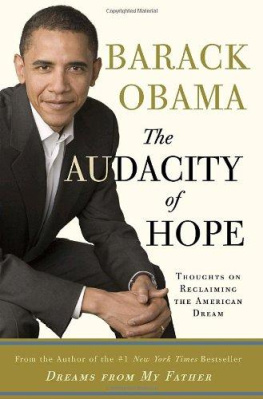F OR M Y F AMILY , W HO A LWAYS R EMIND M E T HERE
R EALLY I S N O P LACE L IKE H OME
Fear is the foundation of most governments; but it is so sordid and brutal a passion, and renders men in whose breasts it predominates so stupid and miserable, that Americans will not be likely to approve of any political institution which is founded on it.
J OHN A DAMS, Thoughts on Government , 1776
Im sorry. I just love my country. And I fear for it.
G LENN B ECK , M ARCH 13, 2009
Contents
The truth isthey dont surround us. We surround them.
This is our country.
G LENN B ECK , F OX N EWS C HANNEL , M ARCH 13, 2009
Y ou are surrounded here in Section 107 of the UCF Arenajust about the only nonbeliever in the middle of what you thought was going to be a bland daylong political forum but instead has taken on all the trappings of an old-fashioned, rocking tent revival. They have come here to Orlando from up and down the East Coast, some 7,500 of them, and the demons they seek to cast out are the evil spirits they believe inhabit the United Statesthe socialists, the Marxists, the totalitarian wannabes and their imposter-in-chief, Barack Hussein Obama.
The preacher of the bad news for modern man, this hellish anti-gospel, is the politically themed entertainer Glenn Beck. In the fifteen months since Obama became the forty-fourth president and first African-American commander-in-chief of the United States, Beck has instinctively created, out of thin airwaves, this unlikely counterrevolution. And so you are in Florida now to see where Beckwrithing on the hard stage and grimacing and even weeping on several occasionsis taking this thing next.
We stood when the odds were against usmaybe some of us were lost along the way, Beck is telling his audience now. But we did our best, and when that happens we have a real chance.
Many in the audience are scribbling his words down on their legal pads, while others look toward the performers sky-blue eyes on the stark stage. Yet Beck is not truly the star of the show. As is his style, he wants to put the audience at the center of the performance. What is new here in Orlando are these American revolutionaries who would man the barricades... of their gated retirement communities. They are speaking in violent language of retaking Americafueled not by the energetic folly of youth but by the distemper of middle age and the latest conspiracy fashions spreading like brushfire over the airwaves and across fiber-optic cables. And the flames are no longer tamped down by the politicians and the pundits but rather fanned, in a craven bid for ratings and votes and even cash from the lucky who still have spare dollars at the dawn of the 2010s.
You are not the kind of person who would ordinarily be at a place like this. You are one of the 53 percent of U.S. citizens who voted for Obama on November 3, 2008, quietly rejoicing in the apparent end of eight years of a torturing and preemptive-warmongering America that you suddenly did not recognize. And then you sat backtoo comfortably, in hindsightpart of a way-too-silent majority that waited to see the green shoots of change, only to instead watch that program seemingly interrupted by this anger coming from the so-called heartland.
You expected the fury to fade away, and when it did not, you labored to understand it. There were more hard questions than easy answerswho were all these angry Americans, and where did they and some of their more out-there political notions come from? Finally, you ventured out to where they wereto the big gun show and the coffee-powered political confabs and the radio control rooms and the small-town political breakfasts, and after many months you have finally come to this Orlando revival tent disguised as a basketball palace, a theme park of exotic political ideas on the far side of Disney World, and everything you thought you knew was changing, right before your eyes.
The one constant during your odyssey to understand the backlash against Obama was this:
They would talk.
And you... would listen, following the trail of voices all the way back to figure out how the hell we got here in the first place.
Chapter One
The Cassandra of Lower Delaware
A t approximately 11 a.m. on June 30, 2009, inside a senior citizens center in the rustic rural county seat of Georgetown, Delaware, a mysterious woman in red appeared with a disturbing message for the citizens of the United States of America.
No one seemed to even know her name. Few people glimpsed her face, either; most just saw her from behind or in silhouette. Yet her words would be heard by millions of people, and discussed at great length across the fifty states over the weeks that followed. This middle-aged siren wore a crimson blouse, and her reddish hair was clipped back. Fittingly, she addressed a direct descendent of one of Americas Founding Fathers, a great-great-great-great-great grandson of Ben Franklin, a courtly seventy-year-old Republican U.S. congressman named Mike Castle. The strangers tone was highly agitated, her words apocalyptic.
Congressman, um, Castle!!! The voice knob was cranked all the way up to eleven, and most of the heads in the senior centerabout two hundred or so of themwhipped around to see who was raising the commotion. I wanna know!... Over the next couple of minutes, the stranger spoke of Dark Conspiracies and of Threats to the Republic, of a bastard prince born in Kenya and of soldiers fighting halfway around the world, of forged documents and an endangered flagall amid knowing whoops of approval. Her cryptic sound waves were captured for posterity by an equally anonymous man with a digital camera, and they soon spread across Americauploaded and downloaded and embedded on blogs until they finally landed in the steel media palace of Rockefeller Center, where eager young producers edited them down and boomeranged them back across the heartland.
This all took little more than three weeks, and by then the woman had long disappearedAmericas own Cassandra, vanished with the salt-flecked breezes that rustle the sea oats across this marshy, isolated corner of the eastern seaboard.
The original Cassandra had first appeared to the world in the fifth century B.C ., another anxious time of great but fragile empire, with rivals to Greeceparticularly Spartaemerging across their pond. The nations bards responded with great and lasting myths of national strength and righteousness. In 438 B.C ., Aeschylus, the father of Greek tragedy, sent the Princess Cassandra, a beautiful vision in red silk, onto the national stage in Athens for the first time in Agamemnon , part of the Oresteia trilogy, all about vendetta and the search for justice in an unjust world. Cassandra has been toyed with by powerful gods for all of her life, and although she is convinced she will be killed for speaking out, the woman is determined to share her strange, incoherent visions with the world before she goes.
In the last 2,448 years, the red prophet has inspired writers ranging from William Faulkner to Florence Nightingale. The academic Seth L. Schein said Cassandra holds our imagination because [s]he evokes the same awe, horror and pity as do schizophrenics, who often combine deep, true insight with utter helplessness and who retreat into madness. But you dont need a Ph.D. in the classics or English literature to see the storys relevance to our current moment, as the national nightmare of the 2000s that Big Media branded The Decade from Hell ended and threatened to morph into something worsewith roughly one out of six willing and able-bodied Americans not working and experts still unable to predict when the job market might fully recover from the economic near-death experience of 2008. You have only to flip on your car radio, where White Men in Mono talk nonstop on a daily basis of socialism and rage against the impending doom that our new president is ushering in.

